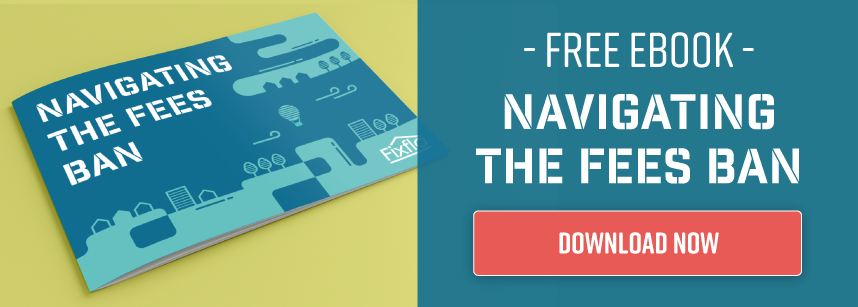In this post, we take a look at the effects of the fees ban in Scotland. Advocates of the proposed English letting fees ban have pointed to the 'successes' that have surmounted north of the border. Fees in Scotland were banned under the Rent (Scotland) Act 1984, with legislation clarified by the Private Rented Housing (Scotland) Act of 2011.
Despite the fees ban, rents for most one to three bedroom flats in Scotland rose by less than inflation in the period 2010-2016 after the fees ban legislation was clarified; a sign, according to the Scottish Government, that the ban has worked.
But, if you scratch beneath the surface of those figures, the positive impact of the ban across the industry becomes less clear-cut.
What kind of ban was introduced? Is it the same as the one proposed for England?
In Scotland, fees which range over and above the rent paid by tenants to letting agents (known as ‘premiums’) have been banned since 1984. However, due to an unclear definition of ‘premiums’ many fees were still being charged. In 2011 the Scottish Government clarified the position and ruled that only rent and the deposit was owed by the tenant; every other charge was to be paid by the landlord.
This differs from the English legislation where, under the proposed letting fees ban, agents would still be able to charge for certain services.
How did agents react?
The reaction varied across the country with some agents being able to absorb the costs, others trying to pass them on and some folding entirely due to loss of revenue. Most worryingly, the evidence suggests that in some areas agencies decreased the services they offered because they couldn’t afford to carry them out. One in four surveyed said they no longer undertake credit checks as standard, which has worrying implications for safety and industry standards.
What was the net impact on the Scottish PRS?
Again, it’s a little early to tell. Proponents of the ban argue that banning fees hasn’t caused the rent rises that critics feared. They point out that Scottish rents rose by just five per cent in the years from 2012 – 2016, compared to the nine per cent rent increase English tenants have experienced (figures from the ONS). But this argument doesn’t take into account the heavy Scottish dependence on the oil industry and the impact that the depressed oil price has had on housing in oil towns like Aberdeen, which have seen their rents tumble, skewing the national figures.
The reality is that, despite the findings of a Shelter report commissioned in 2013 showing that just two per cent of landlords had increased rents specifically because of the fee ban, a poll by the Council of Letting Agents (CLA) found that 20 percent of its members reported an increase in rent as a result of the change and nine per cent reported the introduction of other fees instead. These ranged from increased management fees to additional fees to landlords. Unsurprisingly, less than 40 percent of landlords agreed that the clarification had improved the rental sector. The conflicting statistics prove it’s too early to draw any firm conclusions, but it is clear that the implementation of the ban hasn’t been as smooth a process as some have claimed.
Do you think that the results will differ in England? Leave your thoughts below! If you'd like more information on the fees ban, don't miss our free eBook. Click on the banner below to download.
You can also pick up our 2019 publication: 10 Ways to Survive the Tenant Fees Ban.
BBC - Letting Fees Ban: How It Works In Scotland
Office of National Statistics - Index of Private Housing Rental Prices in Great Britain: May 2017
Shelter - Lessons From The Scottish Lettings Market

BLOG DISCLAIMER
This article is intended for information purposes only and does not constitute legal advice. If you have any questions related to issues in this article, we strongly advise contacting a legal professional.
These blog posts are the work of Fixflo and are licensed under a Creative Commons Attribution-ShareAlike 3.0 Unported License. In summary, you are welcome to re-publish any of these blog posts but are asked to attribute Fixflo with an appropriate link to www.fixflo.com. Access to this blog is allowed only subject to the acceptance of these terms.

